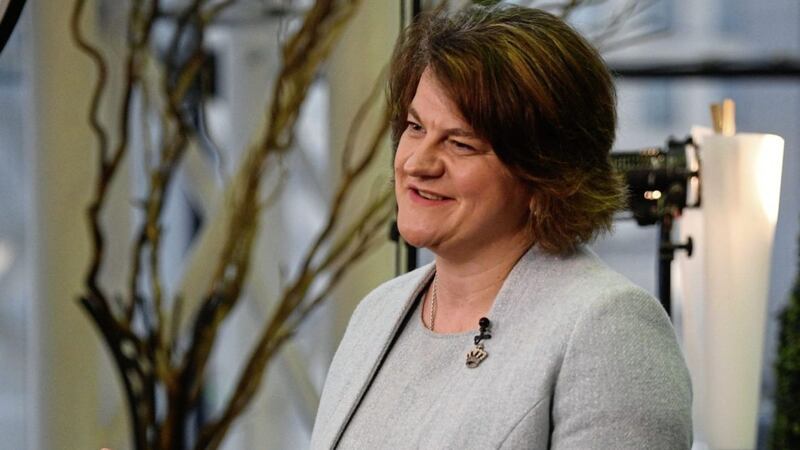The RHI scandal burned more than wood pellets. It has scorched Arlene Foster's political career, cremated the DUP's reputation as a serious party of government and badly singed the entire spectrum of unionism.
So as we rake the embers of the RHI Inquiry, can we expect some sort of political phoenix to rise from the ashes and resurrect Arlene, her party and the integrity of the union? Or will they all just go up in political smoke in the only case of self-inflicted, reputational arson in Irish history?
Arlene is still DUP leader because there is no obvious successor and because a new leader must ensure that the RHI fire has been completely extinguished before taking office. DUP MLAs have displayed limited political talent and, despite her obvious professional ability, Mrs Foster does not appear to have been blessed with a political brain.
As a unionist, her primary objective should be to prevent a united Ireland. So she needs a soft Brexit to guarantee a seamless border and thus render redundant the demand for a border poll.
Thus you would expect Arlene to back Theresa May's attempts to bring Britain close to a common trading area with the EU for a soft Irish border. But Arlene has opted instead to back Boris Johnson, a man who boasted to a cheering Tory party conference in 2016 about the "178 nations in the world we either conquered or invaded".
His anti-EU stance is influenced by the quaint belief that Britain can build a new empire. Like the previous one, it will presumably bring cricket and Christianity to those less fortunate than the British, who will then steal their wealth and their land in the name of God and fair play. Presumably Arlene supports his views, but an Aghadrumsee imperialist is perhaps not quite what the DUP needs as a leader right now.
Her political future depends on Sinn Féin returning to Stormont, but such progress will have to wait until after the next election in Dublin. Its timing will depend on the details of the Brexit deal and Arlene might be better employed trying to shape and speed up that process so she can get her old job back. Sadly, her political judgment suggests she neither deserves it, nor will keep it for long if she gets it.
So, what of her party? The RHI Inquiry has shown that the DUP is not so much a political party, more a collection of competing political and financial interests, held together by greed, patronage and self-interest - oh and sectarianism.
The inquiry evidence illustrates that although the party is tightly controlled from the top, it takes its political lead from the bottom. For example, a DUP special adviser forwarded one of Jamie Bryson's blog posts to Arlene, at a time when she was apparently not being kept informed on RHI. Political opinion on the streets was a more important policy consideration than ensuring that the wheels of government kept turning. Thus the DUP acts as unionism's lowest common denominator.
However, its tarnished reputation will not electorally impact on the fortunes of unionism in general. Like nationalism, unionism is guaranteed electoral support just by existing. But that does not mean that unionism has a bright future, because it does not seem to be clear about what exactly it is.
We know it stands for the Union, but is that it? A single sentence ideology? (If so, it shows that Marx was not too good at writing. It took him three 800-word volumes to explain his ideology in "Capital".) Beyond a single sentence, unionism appears to have no coherent political thought, apart from an inherent right wing bias, possibly in the belief that nationalists are more likely to be left wing (which shows a serious misunderstanding of nationalism's role in Irish history).
Until unionism can debate a range of policy options from left to right, it will remain a sort of political black hole from which no light will emerge and into which no new thinking will be allowed. Unionism can either think or die and since 1922 it has proved pretty poor at thinking.
Meanwhile the queue of DUP former stars trudges through the RHI Inquiry, in Belfast's version of Bonfire of the Vanities. But not all the vanities in the DUP were burned and until they are, the party will be unable to rise from the ashes. That resurrection looks increasingly unlikely, because not only has the DUP destroyed its reputation through RHI, its threat to bring down Theresa May's government over Brexit suggests that it is intent on killing off the phoenix as well.









